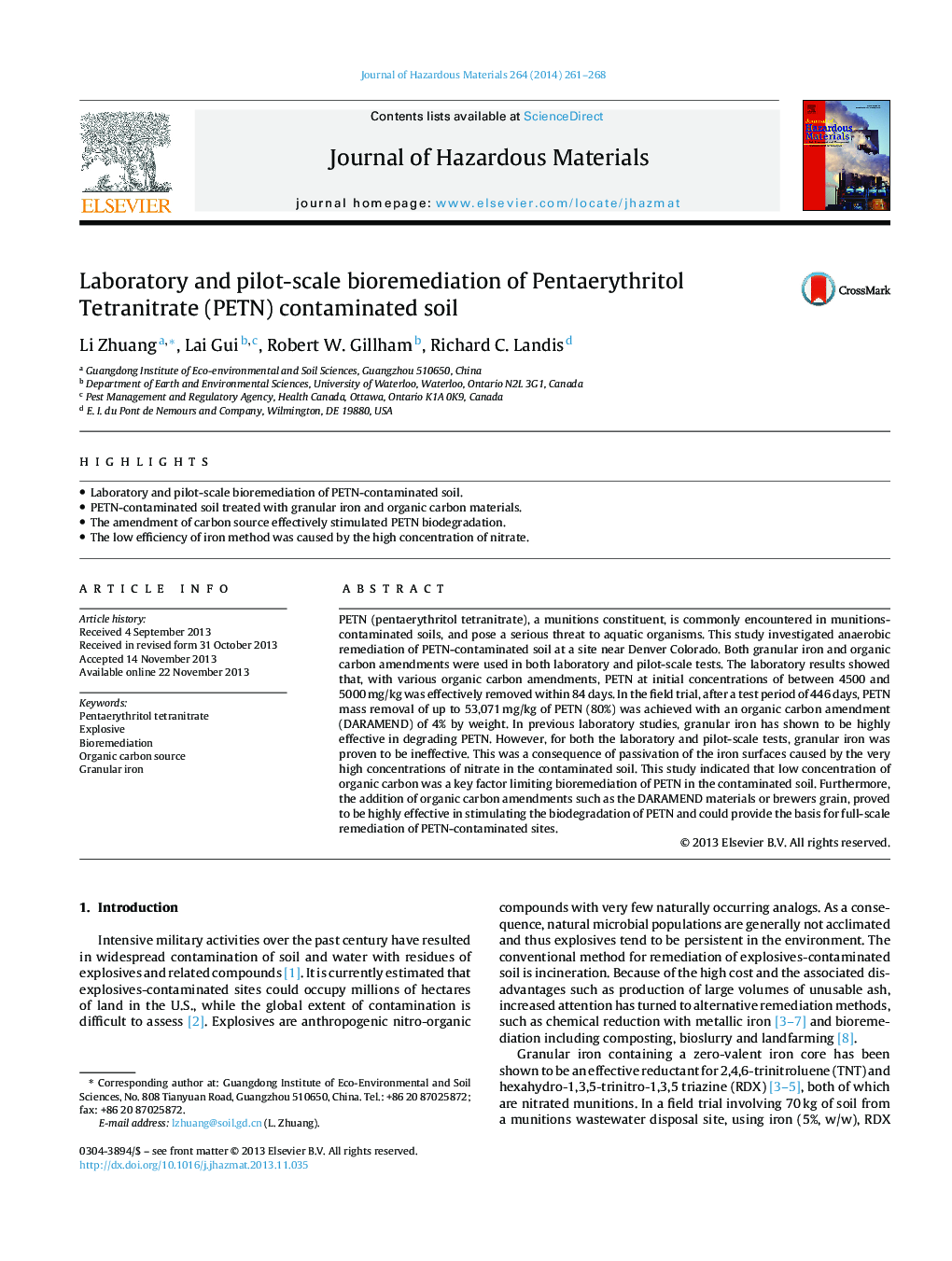| Article ID | Journal | Published Year | Pages | File Type |
|---|---|---|---|---|
| 577032 | Journal of Hazardous Materials | 2014 | 8 Pages |
Abstract
PETN (pentaerythritol tetranitrate), a munitions constituent, is commonly encountered in munitions-contaminated soils, and pose a serious threat to aquatic organisms. This study investigated anaerobic remediation of PETN-contaminated soil at a site near Denver Colorado. Both granular iron and organic carbon amendments were used in both laboratory and pilot-scale tests. The laboratory results showed that, with various organic carbon amendments, PETN at initial concentrations of between 4500 and 5000Â mg/kg was effectively removed within 84 days. In the field trial, after a test period of 446 days, PETN mass removal of up to 53,071Â mg/kg of PETN (80%) was achieved with an organic carbon amendment (DARAMEND) of 4% by weight. In previous laboratory studies, granular iron has shown to be highly effective in degrading PETN. However, for both the laboratory and pilot-scale tests, granular iron was proven to be ineffective. This was a consequence of passivation of the iron surfaces caused by the very high concentrations of nitrate in the contaminated soil. This study indicated that low concentration of organic carbon was a key factor limiting bioremediation of PETN in the contaminated soil. Furthermore, the addition of organic carbon amendments such as the DARAMEND materials or brewers grain, proved to be highly effective in stimulating the biodegradation of PETN and could provide the basis for full-scale remediation of PETN-contaminated sites.
Related Topics
Physical Sciences and Engineering
Chemical Engineering
Chemical Health and Safety
Authors
Li Zhuang, Lai Gui, Robert W. Gillham, Richard C. Landis,
